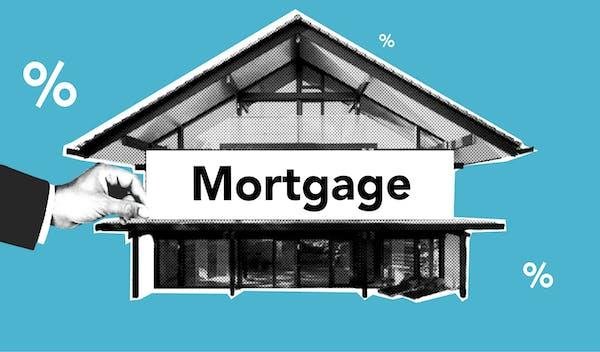If you have bad credit, it can be difficult to secure a mortgage. Are you looking to purchase a home in Canada but have bad credit? It can be difficult to secure a mortgage with less-than-perfect credit, but it’s not impossible. With the right strategies and preparation, you can improve your chances of getting approved for a mortgage.
One of the first things you should do is check your credit score and report. Make sure there are no errors or inaccuracies that are affecting your score. If there are, work to correct them as soon as possible. You should also try to pay down any outstanding debt and keep your credit card balances low.
Another important step is to consider a secured credit option, such as a secured credit in Canada or a loan. In Canada, a secured credit card or loan is one where you put up collateral, such as a savings account, to secure the credit. This can help to establish or rebuild your credit and may increase your chances of getting approved for a mortgage with bad credit.
However, there are steps you can take to improve your chances of getting approved for a home loan.
Here are some key points to keep in mind:
Table of Contents
1. Improve Your Chances Of Secure A Mortgage With Bad Credit
Having a bad credit score can make it difficult to secure a mortgage, but there are steps you can take to improve your credit and increase your chances of getting approved.
Here are some key points to keep in mind when working to improve your credit score:
● Check Your Credit Report And Score
Start by checking your credit report and score. Make sure there are no errors or inaccuracies that are affecting your score. If there are, work to correct them as soon as possible.
● Pay down debt and keep balances low
High levels of debt can negatively impact your credit score. Try to pay down outstanding debt and keep your credit card balances low.
● Consider Secured Credit Options
Secured credit options, such as a secured credit card or loan, can help establish or rebuild your credit. In Canada, secured credit options involve putting up collateral, such as a savings account, to secure the credit.
● Make All Payments On Time
Your payment history is one of the most important factors in determining your credit score. Be sure to make all payments on time, as a history of late payments can significantly damage your credit score.
● Be Mindful Of New Credit Applications
Each time you apply for credit, it can have a negative impact on your score. Be mindful of new credit applications, and only apply for them when you truly need them.
● Keep Older Credit Accounts Open
Your credit history is one of the important factors, and the length of your credit history accounts for about 15% of your credit score. Keeping older credit accounts open can demonstrate a longer credit history and boost your score.
● Diversify Your Credit
A mix of different types of credit, such as a mortgage, credit card, and personal loan, can also help improve your credit score.
● Be Patient
Improving your credit score takes time and effort, so be patient. It may take several months or even a year to see significant improvements in your score, but by following these steps, you can improve your chances of getting approved for a mortgage with bad credit.
By understanding the factors that impact your credit score and taking steps to address any issues, you can improve your credit and increase your chances of getting approved for a mortgage.
Keep in mind that it takes time to improve your credit score, so be persistent and patient, and always make sure to pay your bills on time.
2. Get A Cosigner
Another option to consider when trying to secure a mortgage with bad credit is getting a co-signer. A cosigner is willing to take on the financial responsibility for your mortgage if you cannot make payments.
Here are some key points to keep in mind when getting a cosigner:
Choose The Right Cosigner
- Choose a cosigner who has good credit and a stable income and is willing to take on the financial responsibility of your mortgage.
- A cosigner with a higher credit score can help increase your chances of getting approved for a mortgage.
Cosigner’s Credit Score And Income Will Be Considered
- When you apply for a mortgage with a cosigner, both your credit score and the co-signer’s credit score and income will be considered by the lender.
- This can increase your chances of getting approved for a mortgage, especially if the cosigner has a higher credit score and income than you do.
Cosigner Will Be Responsible For The Mortgage Payments
- It’s important to remember that a cosigner is taking on financial responsibility, so if you are unable to make your mortgage payments, the cosigner will be responsible for them.
- Make sure you understand and are comfortable with this responsibility, and get an idea of financial wellness tips for millennials before asking someone to cosign for you.
Cosigner May Have Other Obligations
- When you ask someone to cosign for you, it’s important to understand that they may have other obligations that could affect their ability to make mortgage payments on your behalf.
- Be sure to discuss this with them and understand their financial situation before making the request.
It’s An Extra Layer Of Risk
- Keep in mind that getting a cosigner means adding another layer of risk, not only for yourself but also for the cosigner because their credit score and income will be considered and impacted as well.
Not All Lenders Will Accept Cosigners
- It’s worth noting that not all lenders will accept co-signers, so be sure to check with the lender you’re considering before you apply.
- Getting a cosigner can be a great option to secure a mortgage with bad credit. A cosigner with a higher credit score and income can help increase your chances of getting approved for a mortgage.
However, it’s important to remember that the cosigner is taking on a financial responsibility, so make sure to understand the responsibility and choose the right cosigner, discuss with them their financial situation and understand that not all lenders accept cosigners.
3. Consider A Government-Backed Mortgage
A government-backed mortgage is one option to consider when trying to secure a mortgage with bad credit. Government-backed mortgages are a form of mortgage insurance that can help make it easier for borrowers with less-than-perfect credit to get approved for a mortgage.
Here are some key points to keep in mind when considering a government-backed mortgage:
● The Government Of Canada’s Home Buyers’ Plan (Hbp)
HBP is one of the government-backed programs that allows first-time home buyers to withdraw up to $35,000 from their RRSPs to buy or build a home. This can be helpful for those who have bad credit and may not qualify for a traditional mortgage.
● Canada Mortgage And Housing Corporation (Cmhc) Insured Mortgages
Another option is to look for a mortgage insured by the Canada Mortgage and Housing Corporation (CMHC). These mortgages can offer more flexible lending criteria and help those with bad credit get approved for a mortgage. The catch is that you will have to pay a premium for the insurance.
● Genworth Canada And Canada Guaranty
Additionally, other government-backed mortgage insurance providers such as Genworth Canada and Canada Guaranty offer similar insurances as CMHC and are also an option to consider.
● Keep In Mind The Terms
Remember that government-backed mortgages often have stricter terms and conditions than traditional ones. Be sure to read the fine print and understand the terms and conditions before signing on.
● Consult With A Mortgage Professional
It’s always a good idea to speak with a mortgage professional when looking at government-backed mortgages. They can help you understand the options available to you and help you find the best solution for your situation.
● Consider The Costs
While government-backed mortgages can make it easier to get approved for a mortgage, they also come with additional costs, such as mortgage insurance premiums, so be sure to consider the overall cost of the mortgage when making your decision.
Government-backed mortgages can be a great option for those with bad credit looking to secure a mortgage. By considering the Government of Canada’s Home Buyer’s Plan, CMHC Insured Mortgages or other government-backed mortgages such as Genworth Canada and Canada.
Guaranty, you can increase your chances of getting approved for a mortgage. However, make sure to understand the terms, consult with a mortgage professional and factor in the additional costs when making your decision.
4. Shorter-Term Mortgage
When trying to secure a mortgage with bad credit, one option to consider is a shorter-term mortgage. A shorter-term mortgage, also known as a high-ratio mortgage, is a mortgage that has a higher down payment requirement and a shorter term than a traditional mortgage.
Here are some key points to keep in mind when considering a shorter-term mortgage:
Higher Down Payment Requirement
- One of the main characteristics of a shorter-term mortgage is that it requires a higher down payment than a traditional mortgage.
- This can be beneficial for those with bad credit because a higher down payment can mitigate the lender’s risk.
Shorter Term
- A shorter-term mortgage typically has a term of 25 years or less, as opposed to the standard amortization period of 25 to 30 years for a traditional mortgage.
- A shorter-term mortgage means the payments will be higher, but the mortgage will be paid off faster.
Lower Interest Rate
- Another advantage of a shorter-term mortgage is that it typically has a lower interest rate than a traditional mortgage. This can help you save money on interest over the life of the mortgage.
Help You Build Equity Faster
- Since the term is shorter, you will be paying off the principal and interest on the mortgage faster, which helps you build equity faster and get ahead on the mortgage faster.
Consider The Affordability
- While a shorter-term mortgage can help you get approved for a mortgage with bad credit, it’s important to consider whether you can afford the higher payments that come with a shorter-term mortgage.
- Be sure to budget accordingly and make sure you can afford the payments before you apply.
A shorter-term mortgage can be a great option for those with bad credit trying to secure a mortgage. Short-term mortgages can mitigate the lender’s risk and make it easier to get approved for a mortgage by requiring a higher down payment and shorter term.
However, it’s important to consider whether you can afford the higher payments and budget accordingly. Also, not all lenders offer shorter-term mortgages, so check with the lender before you apply.
Applying for a reverse Mortgage with Bad Credit
- Ensures the timely payment of taxes and insurance: The primary concern for reverse mortgage lenders is the borrower’s ability to maintain the home and pay property taxes and insurance premiums. The LESA ensures these payments are made on time, reducing the risk of default and potential foreclosure.
- Addresses credit-related concerns: Borrowers with bad credit may have a history of late or missed payments, leading to a higher perceived risk for the lender. The LESA addresses this concern by providing a dedicated source of funds for essential expenses associated with the property.
- Simplifies budgeting for the borrower: By setting up a LESA, borrowers don’t have to worry about budgeting for property taxes and insurance premiums, as these expenses are automatically covered. This can make managing finances during retirement easier, especially for those with a history of poor credit management.
- Reduces risk of default: Since the LESA covers property taxes and insurance premiums, it lowers the risk of default on these essential expenses. This in turn reduces the likelihood of foreclosure, which is beneficial for both the borrower and the lender.
- Compliance with financial assessment requirements: Reverse mortgage lenders are required to perform a financial assessment of borrowers to evaluate their ability to meet their financial obligations. The LESA helps borrowers with bad credit meet these requirements by demonstrating a plan for covering property-related expenses.
While a LESA can help borrowers with bad credit qualify for a reverse mortgage, it’s important to note that it will reduce the available loan proceeds, as a portion will be reserved for property taxes and insurance premiums. However, the benefits of having a LESA in place, such as timely payment of essential expenses and reduced risk of default, often outweigh this drawback for borrowers with poor credit.
Final Thoughts
In conclusion, securing a mortgage with bad credit can be challenging, but it’s not impossible. You can use several strategies to improve your chances of getting approved, including checking and fixing errors in your credit report, paying down debt, and considering secured credit options.
Additionally, you can explore options for considering a government-backed mortgage, getting a cosigner, or shorter-term mortgages. It’s important to understand that improving your credit score takes time and effort, so be patient.
Ultimately, the key to getting approved for a mortgage with bad credit is to be prepared and have a solid plan. By understanding the factors that affect your credit score and taking steps to address any issues, you can improve your credit and increase your chances of getting approved for a mortgage.
And always consult with a mortgage professional. They can guide you through the process and help you find the best solution.





